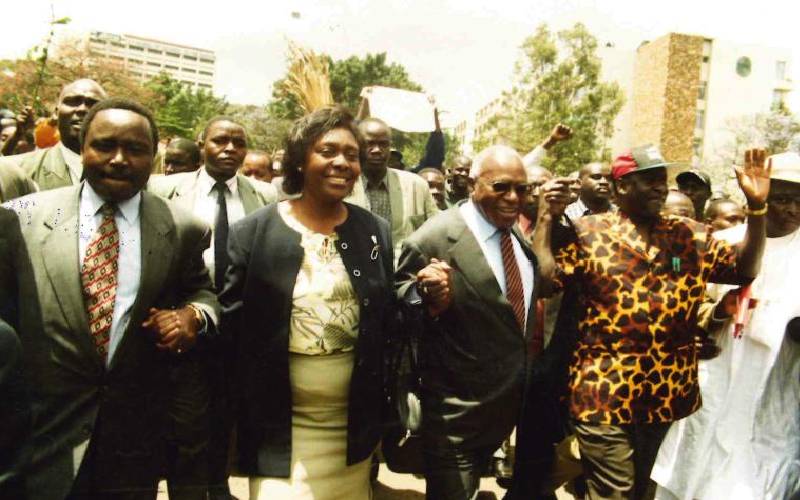×
The Standard e-Paper
Smart Minds Choose Us

From left: Kalonzo Musyoka, Charity Ngilu, Simeon Nyachae and Raila Odinga walk out of Uhuru Park, Nairobi after a rally in the run-up to the 2002 elections. [File, Standard]
The trust and faith the first president of Kenya, Jomo Kenyatta, had in Simeon Nyachae manifested in his being appointed Rift Valley’s Provincial Commissioner after independence.